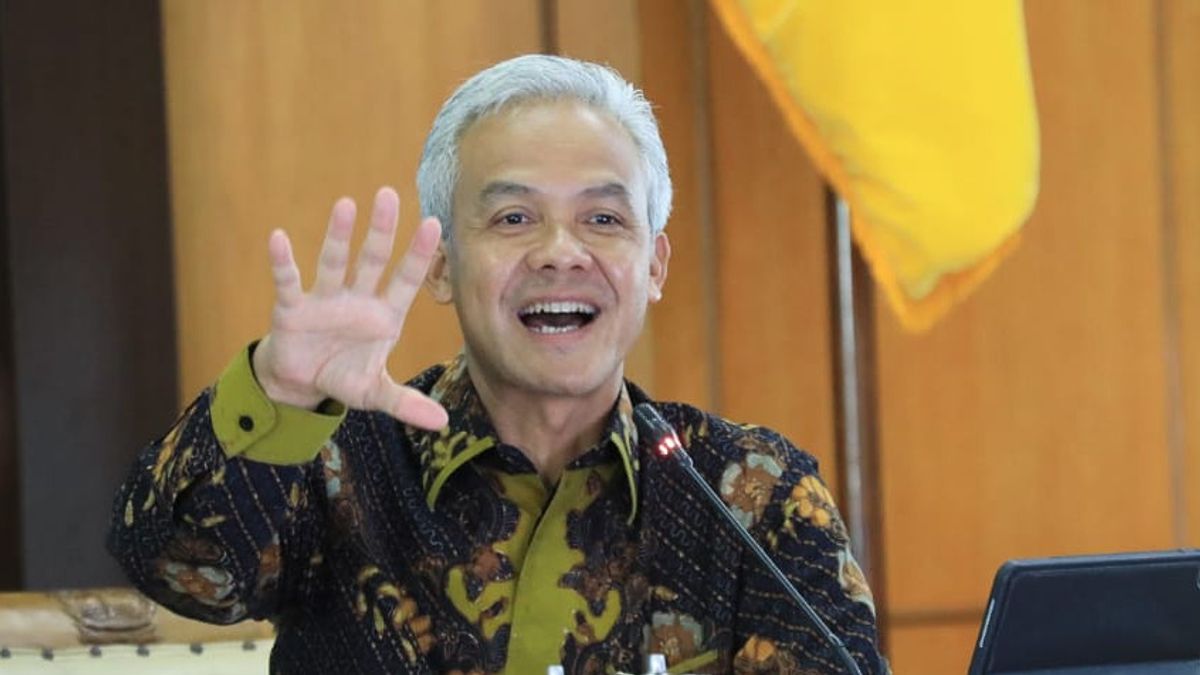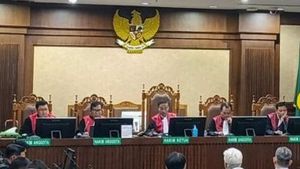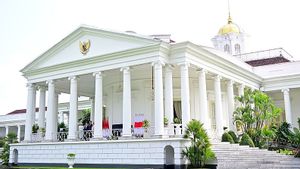JAKARTA - Central Java Governor Ganjar Pranowo together with Surakarta Mayor Gibran Rakabuming Raka conveyed their support for increasing the hajj quota and building a new hajj dormitory.
"Commission VIII wants to confirm several of its working partners. Earlier there was a major issue regarding the hajj, as well as an evaluation of its implementation. It is possible that the quota will increase, so several places are considered to create a new hajj dormitory," said Ganjar, Wednesday, August 3.
After receiving a working visit from the Commission VIII DPR RI recess, at the Surakarta Mayor's Office, Ganjar explained, there were many simulations for them, in order to provide good facilities. Among other things, how to get on a plane, open a hotel lock, even related to hot-cold faucets.
It seems trivial, but it needs to be simulated because not all pilgrims know how to do it. Because several cases of pilgrims were found in the holy land, it was difficult to use the facilities.
“It is trivial but very important. Of course, with regard to increasing the capacity of prospective pilgrims, especially those in Central Java, it seems that one more pilgrimage hostel is needed, but in the Pantura area. Actually the best around Semarang Raya, whether later in Semarang, Demak, or Kendal. Now we will try to find it," said Ganjar quoted from the provincial government's statement.
Another issue raised by Commission VIII of the DPR RI in the recess work was related to the disaster law. In that particular case, they will conduct a review related to the BNPB institution.
"In my opinion, this must also be strengthened, because Indonesia is a disaster-prone area. How is the management and regional participation, perhaps the implementing regulations must be carried out, and we are ready to support all of them," said Ganjar accompanied by Surakarta Mayor Gibran Rakabuming Raka.
The next problem, added the governor, is regarding the integrated data on social welfare (DTKS), because in practice there are many obstacles, especially the incompatibility of recipients of social assistance. According to Ganjar, DTKS must be completed immediately. Thus, local governments are ready to assist the central government, by verifying and validating data.
“I think it's important to have a program. I proposed this to my friends there, including integrating our citizens who are categorized as poor, in any category, in what sector, in what amount, and it must be integrated into one data," he explained.
In addition, the data integration has not yet been fully covered. For example, related to the Smart Indonesia Program (PIP) for educational assistance that has not been integrated. This is different from the integrated PKH and KIS assistance.
"We must discuss this between sectors, so that later field verification can be better," said Ganjar.
The head of the recess team for Commission VIII of the Indonesian House of Representatives, Marwan Dasopang, said there was a possibility that the quota for international pilgrims would be increased from the previous 2 million to around 5 million. The increase will of course also affect the quota of pilgrims from Central Java.
It is known, Central Java is one of the regions that contributes the largest quota of pilgrims from Indonesia. Therefore, it is necessary to have one more Hajj hostel in Central Java, precisely in the Pantura area.
"We want one more Hajj hostel in the Pantura area, later the airport will go through Ahmad Yani International Airport. There have been several proposed locations but further follow-up is needed, so we want the provincial government to help prepare the land,” he said.
In addition to the hajj dormitories, Marwan also highlighted the Baznas program in Central Java which helps in poverty alleviation. Not only providing cash assistance, but also providing assistance and training, so that the community has the skills to improve family welfare.
"We see that there is good progress in Central Java, earlier there was Baznas and also the law on pesantren. For DTKS validation, the problem is almost the same as in other regions," he explained.
Marwan added that during the meeting Governor Ganjar proposed a program, namely a cross program between the ministry and the provincial and district/city governments. Thus, meeting what the governors and regents/mayors are doing can be combined with the ministry.
"We will take this to urge the central government or ministries to carry out cross-programming," he said.
Marwan also appreciated the Central Java Provincial Government for providing incentives for religious schools and teachers under the Ministry of Religion. According to him, so far the Ministry of Religion's budget is not sufficient to cover even the smallest matters, such as incentives for religious teachers and Koran teachers.
“Even though the teacher of the Koran and religion have an important role. We appreciate it because Governor Ganjar has disbursed nearly Rp400 billion," he said.
The English, Chinese, Japanese, Arabic, and French versions are automatically generated by the AI. So there may still be inaccuracies in translating, please always see Indonesian as our main language. (system supported by DigitalSiber.id)













